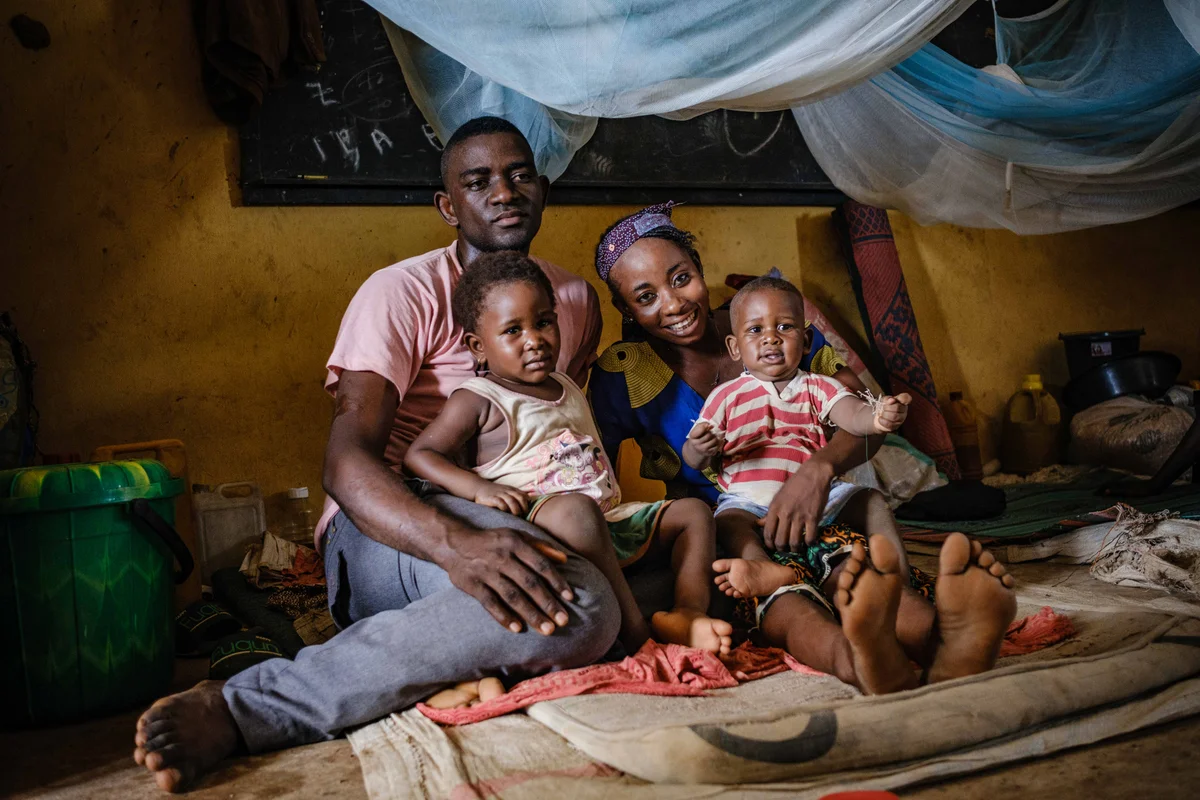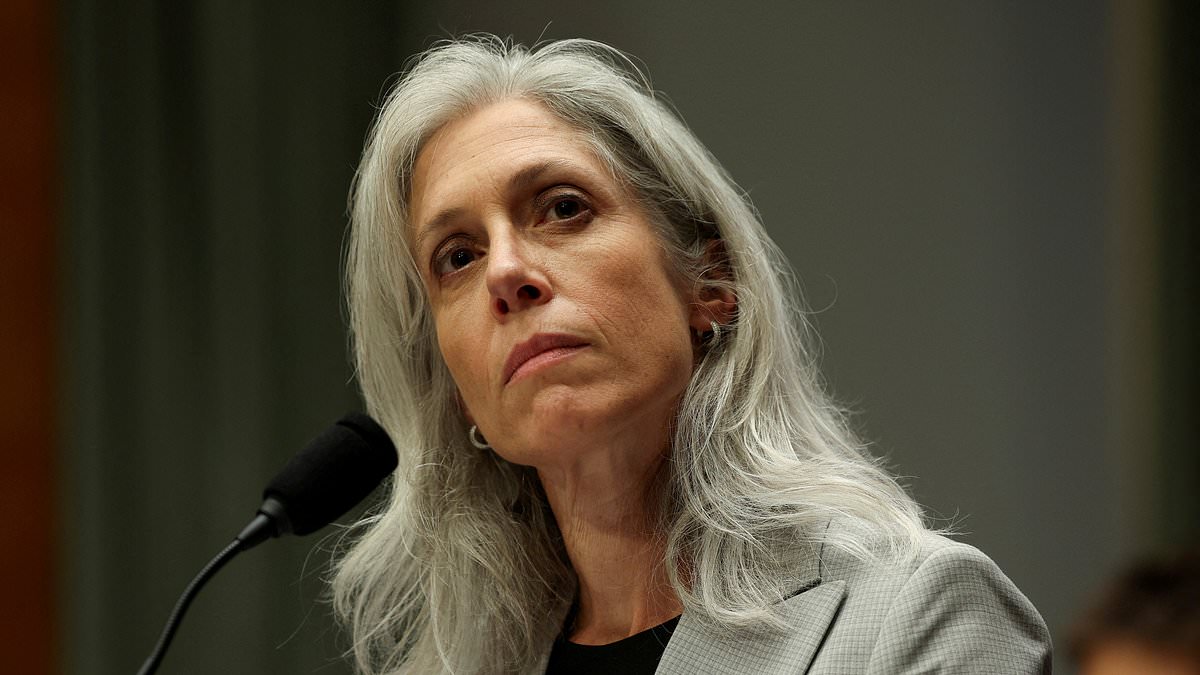How deadly conflict and climate crisis left the ‘food basket of Nigeria’ a humanitarian disaster zone
By Nick Ferris
Copyright independent

Jacob, a young farmer from Benue state in central Nigeria, was forced to flee his village after herders came attacking in the night.
“The herdsmen were everywhere: they came with their guns and they burnt down our homes,” he tells The Independent, speaking from the Agagbe Camp for Internally Displaced People (IDPs) in Benue. The herders killed several of his brothers, and he has not been able to return to his village since without armed security.
“Our homes are all gone, except for those that they hide in in order to terrorise us,” he says of the incident in 2019. “The common trees in our village have all been chopped down, and the cows graze where our crops used to be.”
Jacob’s story is far from unique: He is one of two million people that the Red Cross estimates have been forced to flee their homes in Benue due to violent ‘herdsmen-farmer clashes’ and flooding. Many have been unable to return home for many years, and live in miserable conditions in crowded camps.
It’s a striking twist of fate for a region that has traditionally been known as the “food basket of Nigeria” due to its high agricultural output – and one that has contributed to a devastating food crisis currently gripping the country, which has left malnutrition contributing to 45 per cent of deaths of all children under five.
This underreported conflict was sparked in 2011, with herders, mostly from the Fulani ethnic group, coming into conflict with farmers as they search for pasture for their cattle. The farmers accuse herders of trampling their crops, polluting water sources, and stealing their property – and the herders in turn accuse farmers of stealing their cattle and attacking their camps.
The climate crisis, in particular climate-induced desertification and irregular rainfall patterns, has played a key role in driving herders towards farmlands, and putting pressure on available land in the densely-populated state. There is also a religious dimension to the crisis, with most herders being traditionally Muslim and most farming communities traditionally Christian.
These factors have this year converged with humanitarian aid cuts to create an escalating humanitarian disaster that the Red Cross warns is being forgotten as other crises are prioritised.
Heavily-armed groups of herdsmen akin to militias have now killed thousands of civilians, as well as members of Nigeria’s security forces, across Benue State. Some 26 camps now exist across across the region to house farmers like Jacob, for whom it is too dangerous to go home
“All we want is the freedom to be able to go home, and to live a free life,” Jacob says. “We would be so very happy if we could just go home and live as we were living before.”
The “IDP” status that Jacob has been left with is akin to being a refugee, but within your own country – and without any of the rights and protections that refugees are guaranteed under international law.
IDPs are described by the UN High Commissioner for Refugees (UNHCR) as “among the most vulnerable people in the world”, and their numbers have more than doubled globally since 2018 as a result of disasters and conflict.
Some 83.4 million people were living as IDPs at the end of 2024, with around 38.8 million, or 46 per cent of the global total, in Sub-Saharan Africa. Some 3.7m IDPs are in Nigeria, among the highest single figures for a country globally.
Jacob, his wife Agathe, and his two young children have been living in Agagbe Camp in Benue since 2021, in conditions he describes as “horrible”.
“Life in the camp is not easy – we have no work and no freedom. All we can do is just stay,” he says. Food rations, he says, are paltry, and most IDPs in the camp are living in accommodation that is not waterproof. The stream where camp residents collect water to drink and clean also serves as their toilet.
“The children in the camp are not going to school, which is terrible because children are the leaders of tomorrow, and we do not know what will become of them,” Jacob continues. “The women cannot afford to give birth in the hospitals, which is why they give birth in the latrines here. We need a hospital and a school.”
The conditions take a major toll on the mental and physical health of camp inhabitants.
“The men are proud people, and they feel ashamed,” says Jacob. “They don’t want people to think they are displaced by men who are just like them. You do not know how it is to be chased away by another man.”
Diseases including cholera and typhoid are rife, as are cases of sexual- and gender-based violence, according to Tony Abah, head of the Nigerian Red Cross in Benue.
Malnutrition is also a major concern across the IDP camps in Benue: Data collected by the Red Cross across Benue and five surrounding states found that 24.7 per cent of children had moderate acute malnutrition and 19.7 per cent had severe acute malnutrition.
“Malnutrition is the major crisis ravaging the camps right now, with children dying all the time,” says Abah.
Hunger is a problem that Gabriel, from Ichwa Camp in Benue State, understands well. Like Jacob, he is a farmer that has been internally displaced by herdsmen-farmer clashes, and has lived in Ichwa since 2020, along with his 79-year-old mother, wife, and six children.
“Life in the camp is not good – we often don’t have enough food to feed ourselves and the children,” he tells The Independent over the phone. “Often our children are crying from hunger or sickness, which is horrible.”
“There is just no way that we can afford to provide two square meals a day for my family of nine,” he adds, his voice breaking.
Gabriel’s father and brother died in the clashes in 2014, and two further siblings were killed when they returned to their homes in 2021. “All we can hope is that one day we can go back to our farm,” he says.
Data recently collected by aid workers in Ichwa Camp found that 85 per cent of inhabitants only feed their infants once or twice a day, while 83 per cent day they never have enough food to feed their children.
As the ‘bread basket’ of the country, fertile Benue state has historically been one of Nigeria’s top three agriculturally productive regions, producing a bountiful crop of foodstuffs like tomatoes, rice, yams, soybeans, and cassava for the country of 230 million people.
The fact that so many farmers have had to abandon their fields, and entire farming communities have lost their livelihoods, has contributed to chronic food insecurity in the country, where food inflation currently stands at a massive 23 per cent.
“The conflict has caused food shortages in the state, and this is now actually affecting other states too, because other states are counting on Benue for support,” says Abah, from the Nigerian Red Cross. “The food basket of the nation is leaking, and this is contributing to malnutrition across the country.”
The World Food Programme’s Nigeria branch has reported significant pressures on its services in recent months, while Lagos Food Bank has also spoken to The Independent about soaring food aid demand that the food bank is unable to meet.
A key driver of the escalating conflict are the more extreme weather patterns – and resulting flooding or drought – that are driving herders towards the lands that farmers have long-occupied in Benue.
“Water scarcity and land degradation have led to conflict between herders, who want their livestock to feed on the little vegetation that can be found in the area, and farmers, who want to protect their crops,” says Gloria Kunyenga, programme coordinator for the Red Cross in Abuja, Nigeria.
“Herders and farmers have also been found to fight over water resources,” she adds. “If there is not enough rain, farmers and herders will do whatever it takes to protect their livelihoods.”
Climate change is also making life inside the camps more difficult, driving intense rainfall that has resulted in flooding, according to Jacob.
“When rains come, the houses that IDPs live in are flooded, and everything they keep in the house is destroyed,” he says. “At this time, some of the IDPs live on the roof.”
This year has seen a new challenge hit IDP camp residents in the form of aid cuts, which the Red Cross maintains has had a significant impact on services available.
According to Abah, organisations including Medecins Sans Frontières and UNHCR have all pulled out from IDP camps in Benue in recent months due to funding pressures. He adds that while the Red Cross – which is largely staffed by IDP volunteers within the camp – will not pull out, it is seriously constrained by the funding the available.
“We are doing things like advising on personal hygiene and organising community groups. But we only have human resources, we do not have other resources” he says. “It is not enough: People are coming to the camps every day, and the state is crying out for humanitarian actors to come in.”
Abah believes that much of the attention of NGOs is fixated on the country’s Northeast, and the humanitarian crisis in Borno State and around Lake Chad, which means that problems in other states such as Benue can be overlooked.
Abah’s colleague Kunyenga adds that the impact of USAID largely pulling out of the country has had wide-ranging ripple effects due to the large number of third party organisations that USAID funded. Like Abah, she cites malnutrition as the key problem facing Nigeria at the moment – but says that funding constraints mean the Red Cross cannot provide treatment for the malnourished, and can only advise camp residents how to make their own treatment, which is a kind of peanut-based paste.
In Agabe Camp, Jacob shares that in addition to the Red Cross, SEMA, Nigeria’s state-run humanitarian agency provides food aid to camp residents, is present, alongside Unicef, which is providing some medical support for the children. There have been no other organisations present in the camp for the past three months, he says, and the food that SEMA shares is not enough.
“The agencies are not coming as frequently any more, and diseases are not being treated,” he says. “Children are becoming very sick, and even some old men have become malnourished.”
Nobody pretends that finding a resolution to the conflict will be easy. It will likely involve some kind of government- or UN-led negotiation between the herders and the farmers, as well as the sensitive designation of land rights in the state.
Last month, US-based peace-building organisation Search for Common Ground published a plan to cut agricultural resource disputes in Nigeria, which involves “cultural exchange” programmes like storytelling, music and sport, as well as village elders and religious leaders taking on mediating roles.
Researchers reported positive responses to the interventions on the ground.
“The clashes were almost routine… Lives were lost, and relationships were torn apart,” said Boniface Nakulmide, a farmer and husband of four children, in a statement shared by Search for Common Ground. “Search taught us to look out for signs of trouble and address them before conflicts could escalate… Before, I saw herders as my enemies but now I realise they are my partners: My farm has benefited from the manure they give me.”
For a conflict now in its fifteenth year, which most observers warn is only getting worse, the research is a glimmer of hope in a world where such a thing is hard to come by.
This article was produced as part of The Independent’s Rethinking Global Aid project



